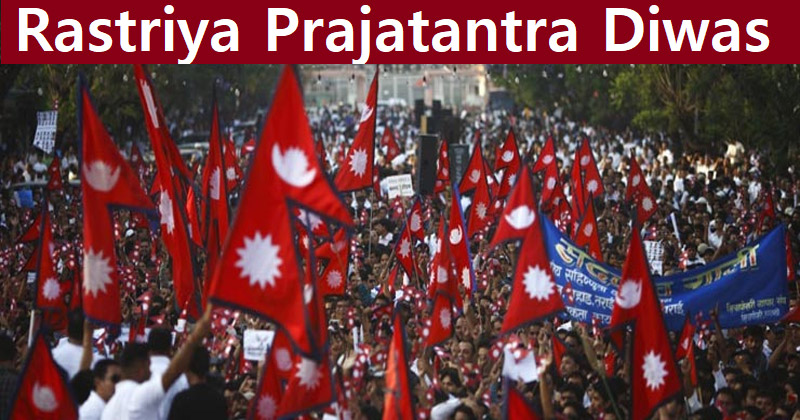
National Democracy Day (Rastriya Prajatantra Diwas) Falgun 7
Nepal's Democracy Day, or Rastriya Prajatantra Diwas, is a significant occasion that commemorates the end of the autocratic Rana regime and the dawn of democracy in the country. Celebrated annually on the 7th of Falgun (late February), this day marks a pivotal moment in Nepal's history, offering a deep dive into the nation's journey towards democratic governance, cultural significance, and public participation. This article aims to provide an in-depth exploration of Democracy Day in Nepal, underlining its historical context, main events, and impact on Nepalese society.
Historical Context of Democracy Day
The history of Democracy Day dates back to February 18, 1951, when the century-long rule of the Rana dynasty was overthrown. This day was the culmination of a long struggle for freedom, rights, and democratic governance. Before this historic shift, Nepal was under the tight grip of the Ranas, who monopolized education and wealth, leading to widespread inequality, discrimination, and illiteracy among the Nepalese people.
The movement towards democracy was significantly influenced by global changes post-World War II, as nations worldwide moved towards independence and democratic governance. In Nepal, this wave of change sparked a series of rebellions against the Rana regime, notably led by the Nepal Praja Parishad (later known as the Nepali Congress), students, and eventually supported by King Tribhuvan.
|
Key Facts:
|
Main Events and Activities
Democracy Day is celebrated with various events and activities across Nepal, reflecting on the nation's democratic journey and achievements. The day is marked by public ceremonies, parades, and speeches, especially in Kathmandu, where government officials, dignitaries, and citizens gather to honor the heroes of democracy. Schools and public institutions engage in discussions, debates, and presentations to educate the younger generations about the significance of this day.
Public and Government Participation
The celebration of Democracy Day is a nationwide event involving both the public and government officials. It is a public holiday in Nepal, allowing everyone to participate in the festivities. The President and Prime Minister of Nepal often address the nation, highlighting the importance of democracy and the ongoing commitment to its principles. Additionally, tribute is paid to the martyrs who sacrificed their lives for democratic freedoms, emphasizing the collective effort and sacrifice that underpins Nepal's democratic foundations.
Significance to the Nepalese People
For the people of Nepal, Democracy Day is not just a public holiday but a reminder of their historical struggle for freedom and rights. It symbolizes the victory of the people's will over autocratic rule and the beginning of a new era of governance, where the power lies in the hands of its citizens. This day is a reflection of Nepal's resilience, unity, and ongoing journey towards prosperity, equality, and justice under a democratic framework.
Interviews and Quotes from Citizens and Officials
In conversations with citizens and officials, there's a shared sentiment of pride and optimism towards Nepal's democratic achievements. "Democracy Day symbolizes our collective strength and the enduring spirit of the Nepali people to advocate for justice and equality," mentions a local official. Citizens express gratitude towards the martyrs and leaders who paved the way for democracy, emphasizing the importance of participation, vigilance, and responsibility in sustaining democratic values.
The Journey of Democracy in Nepal
The establishment of democracy in 1951 was just the beginning of Nepal's political evolution. The country has since navigated through various political systems, including a brief period under the Panchayat system, movements for democracy restoration, and eventually moving towards a federal democratic republic governance model. The Constitution of Nepal, adopted in 2015, represents the aspirations of its people for a democratic, inclusive, and prosperous nation.
Reflecting on Democratic Values
As Nepal celebrates Democracy Day, it's a time to reflect on the values that democracy stands for - freedom, equality, justice, and the right to self-determination. It's a day to recommit to those principles, ensuring that the struggles of the past are not in vain and that the future is shaped by the collective will of its people.
Conclusion
Democracy Day in Nepal is a testament to the country's enduring spirit and commitment to democratic principles. It offers a moment to celebrate the achievements, remember the sacrifices, and look forward to a future where democracy continues to flourish. As Nepal continues on its democratic journey, Democracy Day remains a powerful reminder of the importance of freedom, rights, and the collective power of the people in shaping their destiny.
In celebrating Democracy Day, Nepal not only honors its past but also looks forward to a future where democratic governance, peace, and prosperity prevail. This day stands as a beacon of hope and a celebration of the democratic spirit that defines Nepal and its people.





